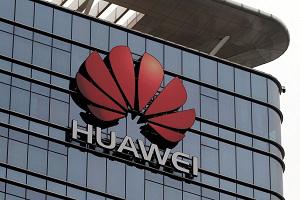"As the new situation has arisen, it is too early to tell whether we are able to achieve the goal," said Zhao Ming, president of Honor, one of Huawei's smartphone brands, during the meeting. at a press conference Friday night in Shanghai, when he answered questions about Huawei's goal to overtake Samsung Electronics and become the world's largest smartphone vendor by the end of 2020, according to a report by the South China Morning Post. According to Ming, Huawei Technologies is reassessing this goal, after a trade ban decree signed by the President of the United States significantly affected not only its production capacity for new smartphones, but also, its international distribution capabilities, the Hong Kong daily reported. Indeed, on May 15, President Donald Trump signed an executive order laying the groundwork to prevent Chinese telecommunications companies such as Huawei from selling equipment to United States, aimed at neutralizing Beijing's ability to compromise US next-generation wireless networks and computer systems. On May 16, the U.S. Department of Commerce's Bureau of Industry and Security (BIS), which administers and enforces U.S. Export Administration Regulations (EAR), specifically added Huawei Technology Ltd. and 68 of its subsidiaries to its commercial blacklist. The addition of Huawei to the commercial blacklist by the US government deprives the company of the services and spare parts that it acquired with American companies, which must now obtain a government authorization before the sale of any product and service to companies from "adversary countries" of the United States. After the entry into force of the trade ban, the Chinese giant's American partners, including chipmakers Intel, Qualcomm , Xilinx and Broadcom, have told their employees not to supply Huawei until further notice or face legal consequences for not complying with the US ban. Google also suspended Huawei's access to future Android operating system updates, affecting its ability to offer popular Google apps on its phones in the future. Other companies and organizations like ARM, Wi-Fi Alliance and SD Association have done the same. The movement has even spread outside the United States, to certain companies in Europe. According to Bloomberg, Huawei, which had foreseen the deterioration of its relations with Google, had developed its own OS for mobile and would be building an alternative to Google's Play Store to continue its production of smartphones. in recent days, the South China Morning Post reported. Indeed, Huawei has reduced its orders for new phones from Foxconn, according to people familiar with the matter, who spoke on condition of anonymity. Temporary or long-term reduction in production? It's not clear yet. However, the Chinese daily also reported that the company's global smartphone sales increased to 15.7% in the first quarter of 2019 from 10.5% in the same period last year, according to data from the firm. Gartner studies. According to the same data, the American Apple, the world's third largest supplier, and the Korean Samsung, currently the largest smartphone supplier, saw their market share drop to 11.9% and 19.2% respectively, during the same period. Earlier this month, before Huawei was added to the BIS list, the trade war between the United States and China escalated further. President Trump announced the end of formal negotiations and raised tariffs on $200 billion worth of Chinese imports by 15%, raising tariffs from 10% to 25%. Following this increase, the reaction of China was not long in coming. The Chinese government had responded by also raising tariffs on $60 billion of US goods, effective June 1. As a reminder, Huawei launched an offensive last Wednesday. During an exit from the company, in connection with the Trump administration's decision to exclude it from the US technology market, Huawei demanded (in a complaint recently filed in a US court) the cancellation of the prohibition imposed on the federal authorities to buy its equipment. According to a report published last Thursday, Huawei has taken other measures with regard to the United States. The company has ordered its employees to no longer hold technical meetings with their American contacts. The Chinese equipment maker has also fired US citizens working in research and development at its headquarters in Shenzhen, according to the Financial Times. Huawei's move came two weeks after US President Donald Trump signed the executive order prohibiting Huawei from substituting US suppliers. According to this Financial Times report, since President Trump's decision, Huawei has been verifying that foreign visitors do not hold U.S. passports and asked all U.S. employees to avoid discussing technology as it tries to comply with regulations, said Dang Wenshuan, Huawei's strategy architect. Separately, according to Global Times, a Another Chinese daily, China is preparing to publish its own list of foreign entities considered to be at risk and to be banned from its market, according to a recent communication from the Minister of Commerce of this country. The Chinese blacklist will include entities, individuals and foreign companies that block the supply chain or take discriminatory measures for non-commercial reasons and who, by their actions, endanger the activities of Chinese companies as well as consumers and businesses. world markets. According to South China Morning Post, Mr. Ming also said during the press conference held last Friday to unveil his flagship Honor 20 series for the Chinese market, that “All difficulties make us stronger, whether it is in mentality or in action. Admittedly, the Chinese company is severely suffering the consequences of its general ban, but what will happen to countries whose 5G deployment plan relied on Huawei? Source: South China Morning Post And you? What do you think ? The American ban would have already got the better of Huawei in terms of smartphones? Read also Global demand for new smartphones is in free fall, Huawei could take advantage of it to become number 2 in the market ahead of Apple Huawei plans $2 billion over five years for cybersecurity to reassure Western customers Huawei in investigation IEEE bans Huawei from peer review of papers, and Chinese scientists quit in protest

